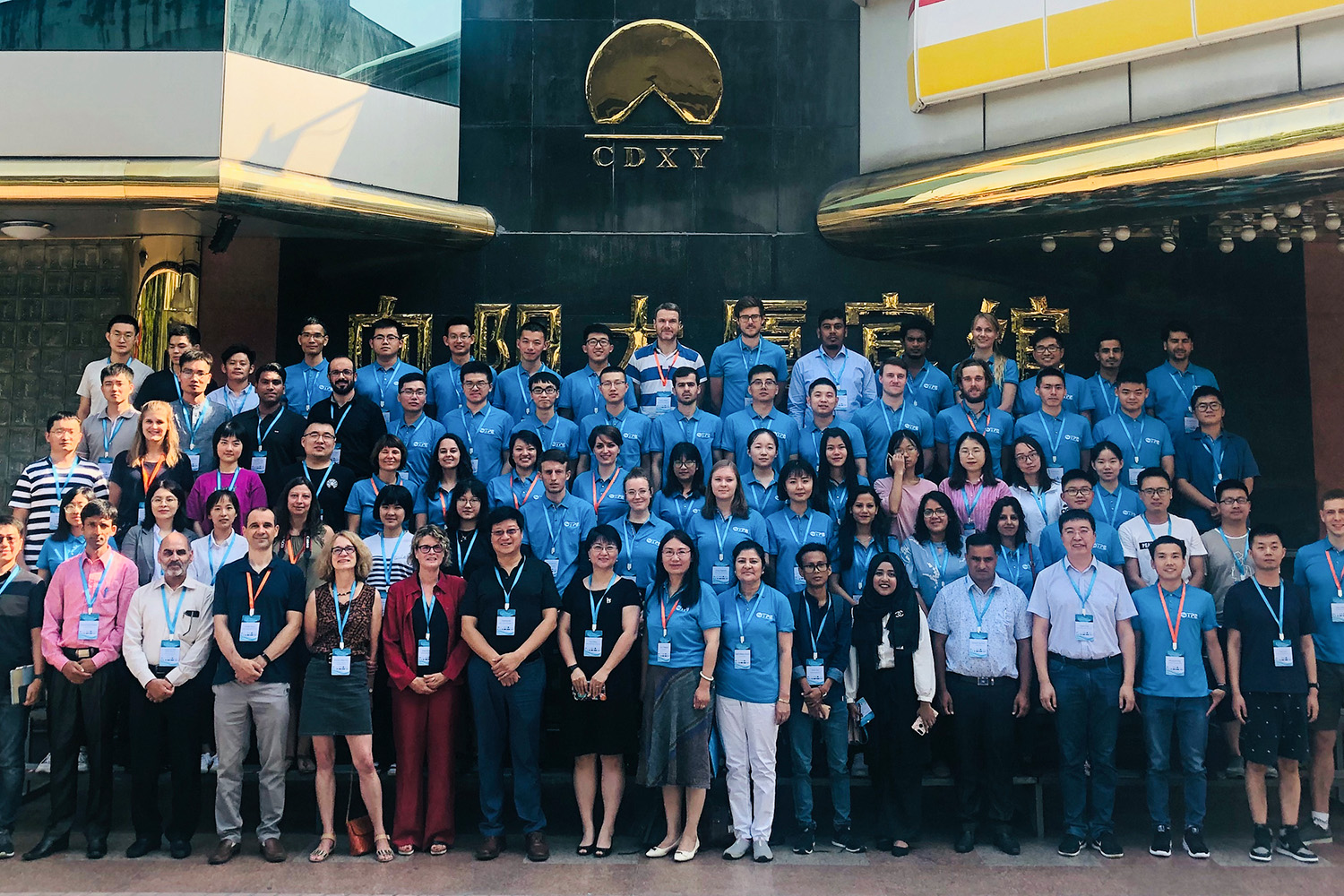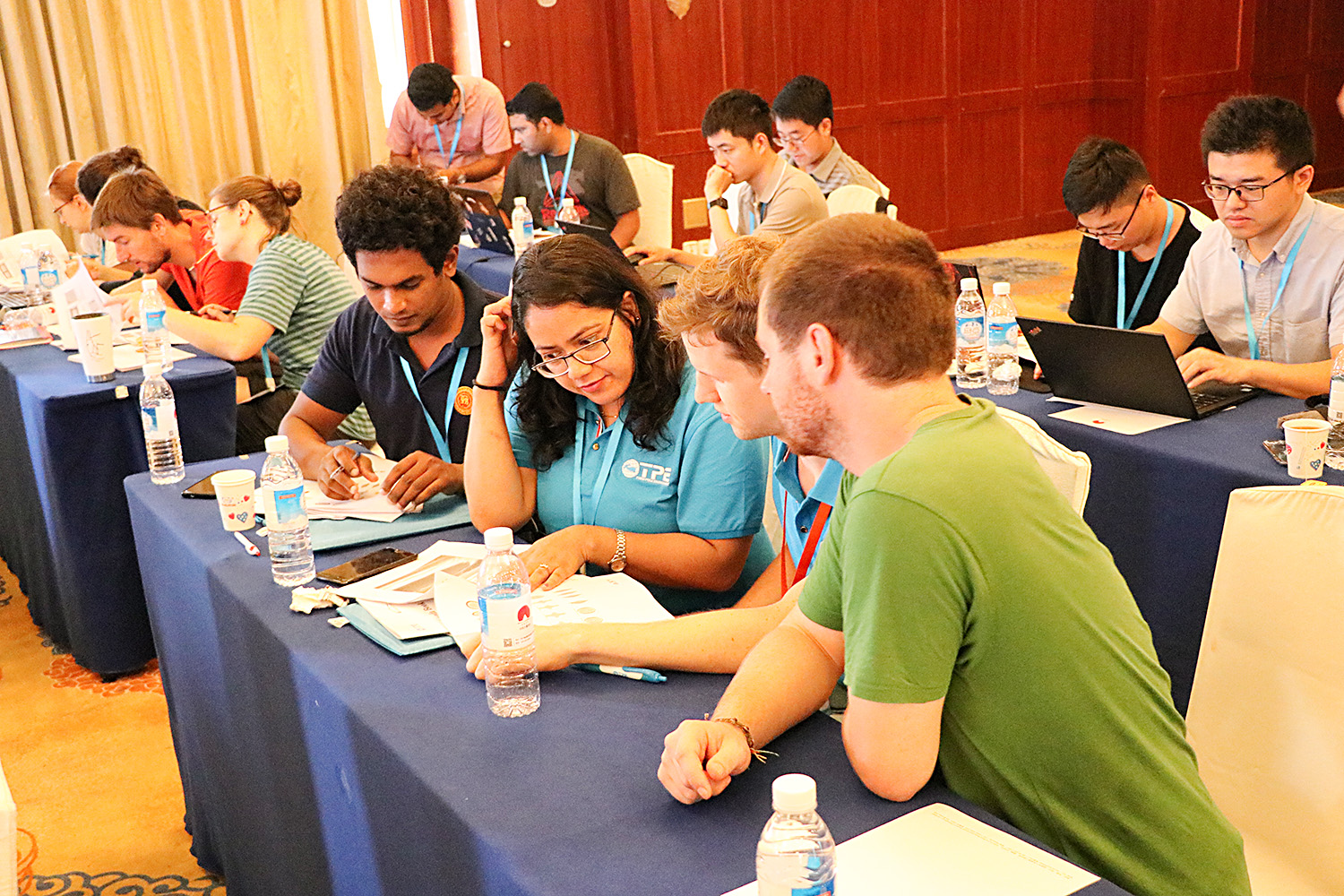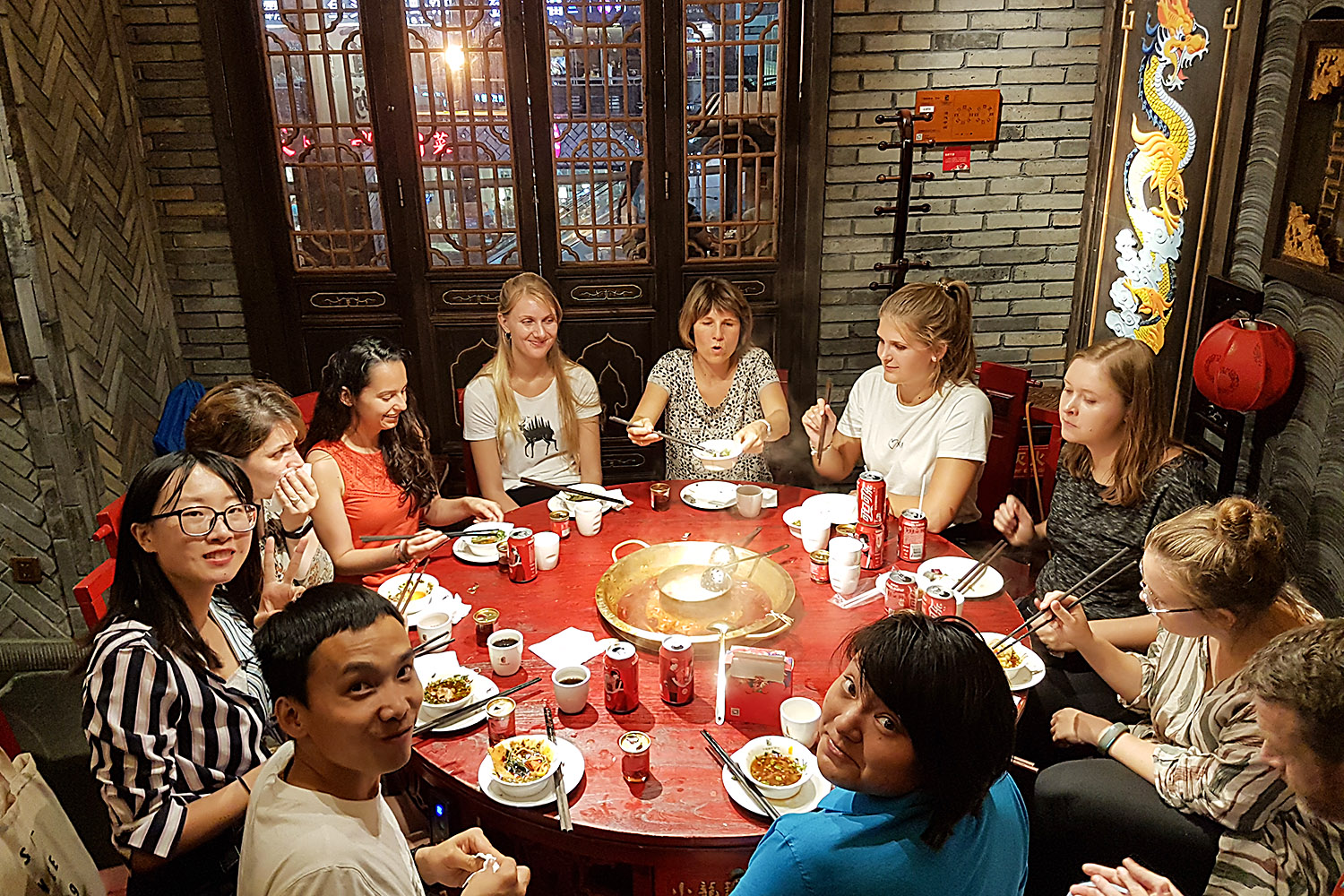Hot, hotter, Hot Pot Logbook TransTiP - Part 2: Summer school with hot sauce
How do people live on the Tibetan Plateau? What is the impact of climate change? During the twoweek summer school in Chengdu, China, the team from the international DFG Research Training Group TransTiP will gain a first insight into Tibetan culture. And Dr. Nicole Börner, Kim J. Krahn and Alexandra Müller from the Institute for Geosystems and Bioindication will experience how spicy Asian food can be.
“With a sunny 38°C and rain-free days – which is very unusual for Chengdu at this time of year, as the rainy season is currently in full swing – the next round of the summer school began. A classic group photo of all participants, teachers and organizers should not be missing at this point.

All at a glance: Participants, teachers and organizers of the 2019 TPE & TransTiP Science and Technology Training in Chengdu. Picture credits: Leilei Zhou/ITP
A complete day was dedicated primarily to the inhabitants of the Tibetan Plateau. Ciren Yangzong from Tibet University in Lhasa presented her research on the impact of climate change on the local population and showed how dramatically changed legislation and tourism affect their way of life.
Dried meat and butter tea
We also got a first-hand insight into the Tibetan culture. For example, Tibetans mainly eat dried meat, as there are hardly any possibilities to cool fresh food. Also the traditional butter tea – a drink of tea, yak butter and salt – is a must for every meal. The lectures were loosened up with interactive tasks in which the international participants worked out solutions together.

Concentrated cooperation during one of the exercises. Picture credits: Alexandra Müller/TU Braunschweig
In addition to scientific work, cultural exchange is a particular enrichment. At the “Hot Pot” dinner, where we were taken to a beautifully designed restaurant by a few Chinese colleagues, we got to know the most popular dish in Chengdu. Despite some tears and bright red faces due to the extremely high degree of spiciness, we enjoyed this convivial form of eating very much”.

Hot! The Hot Pot meal in a traditional Chinese restaurant brought tears to some people’s eyes. Picture credits: Dr. Nicole Börner/ TU
Braunschweig
Text: Dr. Nicole Börner, Kim J. Krahn, Alexandra Müller
